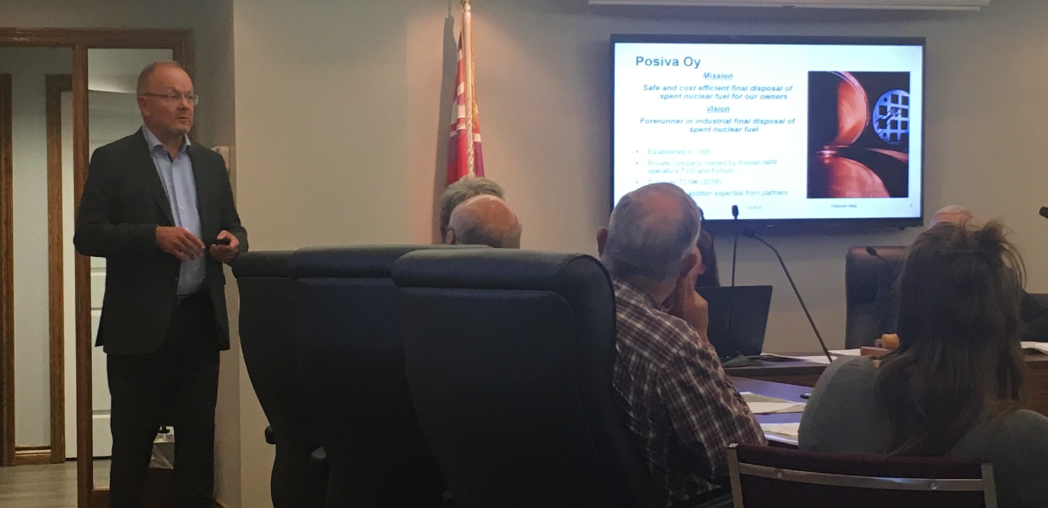Huron-Kinloss and South Bruce recently welcomed Mika Pohjonen from Posiva to share Finland’s journey from approval to construction of the world’s first deep geological repository for spent nuclear fuel.
Posiva is the Finnish counterpart to the Nuclear Waste Management Organization (NWMO). It is also responsible for the safe, final disposal of used nuclear fuel in a manner that protects people and the environment.
Posiva’s program was initiated 40 years ago, beginning its process in 1978. After a 17-year site selection process, Olkiluoto Island, which is about 275 kilometres northwest of Helsinki, was chosen to host the deep geological repository for used nuclear fuel from Posiva’s two owner utilities. Posiva was granted the first construction licence in the world for a deep geological repository in 2015 and began construction shortly thereafter in 2016.
“Posiva is now in full speed construction of the encapsulation plant and first final disposal tunnel,” said Mr. Pohjonen. “We are planning to submit the operating licence application in 2021 and begin operation in 2025.”
“Having Mr. Pohjonen visit the Community Liaison Committee meetings in Huron-Kinloss and South Bruce provides a valuable opportunity for information and knowledge sharing,” said Paul Austin, Relationship Manager at the NWMO. “It has been a great opportunity for the NWMO – and our communities – to learn from other countries.”
Mr. Pohjonen also toured Ontario Power Generation’s (OPG) rock core storage facility and learned about the rock in Bruce County and OPG’s plans for a deep geological repository for low- and intermediate-level waste. Finland’s two final disposal repositories for low- and intermediate-level waste have been in operation for over 20 years.
The NWMO is currently collaborating with Posiva on a large-scale research project – known as the Full-Scale In-Situ System Test – that will inform nuclear waste management efforts around the world. The NWMO works with specialists from Posiva and others around the world to ensure Canada’s plan continues to be based on and benefit from the best science.
For more information of Posiva’s project, please visit www.posiva.fi/en.

